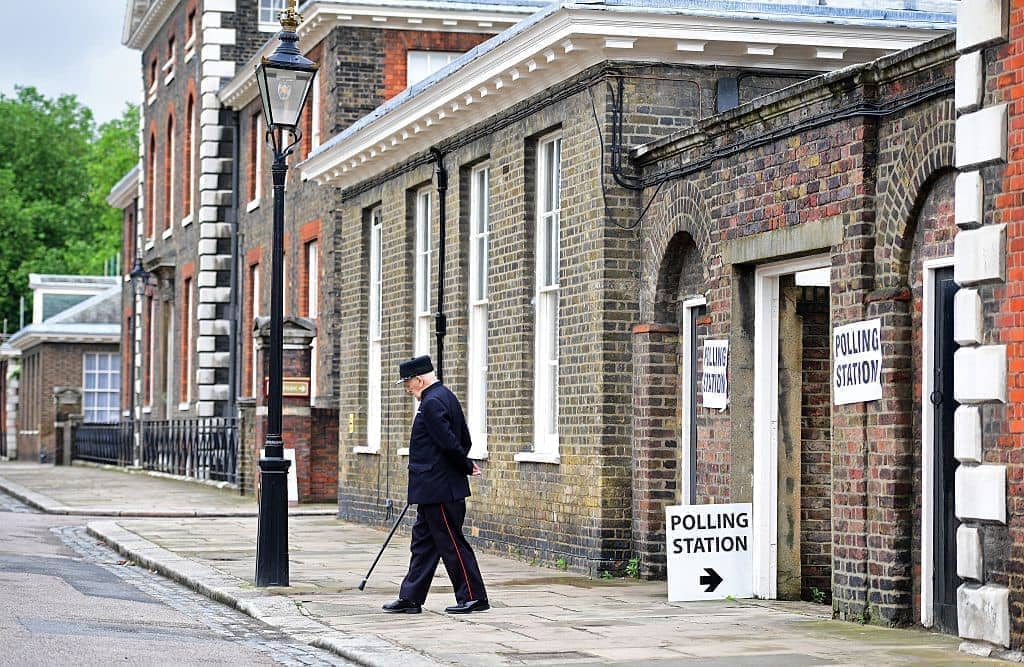‘If young Americans knew what was good for them’ the historian Niall Ferguson once remarked, ‘they would all be in the Tea party’. In his first Reith Lecture, Ferguson argued that austerity would be a boon for the young; public debt merely allowed ‘the current generation of voters to live at the expense of those as yet too young to vote or as yet unborn.’
It is certainly true that successive generations in Britain have run up an almighty tab while assuming the next group along will be able to foot the bill. The problem Ferguson neglected to account for was which voters would end up delivering a pro-austerity government into power.
For years now Britain’s government policy has been predicated on the belief that the elderly will vote in sufficient numbers to win elections, and the young will simply have to tolerate their decrees. The coalition years were an extended demonstration of this Boomerocracy; pensioners of all incomes were effectively insulated from the cuts in government spending, while families attempting to raise children bore the brunt. The Covid-19 response took this model to its logical extreme, confining young people to crowded rental accommodation in order to avoid spreading a disease they were resilient to, permitting them to leave only in order to fulfil their role as funders of the NHS. For this selfless sacrifice, they were thanked with a smash and grab raid on their incomes when Rishi Sunak raised National Insurance – a tax paid by those under state pension age.
Britain is locked in a vicious cycle. You can think of the country as a pyramid turned on its tip. A large and growing number of pensioners sit at the top demanding ever more health, social care, and pensions spending. And supporting this unwieldy load is a shrinking working population which is losing more and more of its income to taxes for services it doesn’t benefit from. With high taxes and costs turning people away from parenthood, the number of children born continues to drop – and with it, the future working population available to support tomorrow’s elderly. How long can the system last when young people are expected to finance the lifestyles of their elders, without reasonable prospects of their own?
Unaffordable housing means record numbers of young people live with their parents or house share well into life, with those renting privately spending a third of their income on housing costs. Tax increases targeted at the young eat away further at their incomes; a masters graduate earning £35,000 with student loans, acquired in an attempt to afford a house of their own, can expect to hand over 27 per cent of their income to the state next year. Their marginal rate of withdrawal – the money taken from an extra pound earned – will be about 48 per cent. If they’re fortunate to see a pay rise into the higher earners bracket, this goes up to nearly 58 per cent.
What they get for this tax burden is the warm and fuzzy knowledge that their hard work is covering for their elders’ failure to save for their own future, and the preservation of their estates. The same dynamics that have driven up the cost of the state today make it unlikely that they will be as generously provided for in their own old age. And while inheritance may eventually make millennials one of the wealthiest generations, it will come far too late to solve the core problem; with an average age of inheritance of 61, that money won’t be much use for starting a family.
If young people in Britain are to expect anything more from life than to be a walking wallet for the older generations, we will need to radically rethink policy. The first option is cutting spending. This is a non-flier. The second is to pay for the transition to a smaller population by increasing borrowing. Economists will note that there is not, necessarily, anything wrong with the idea that we can simply pass the bill down the line forever; governments are not people, and can borrow indefinitely so long as economic growth outstrips the interest accumulating on that borrowing. The problem for Britain is that economic growth has been anaemic, and the same demographic trends driving this problem work directly against it.
The third option is to increase economic growth. If everyone is richer, then it’s significantly easier to pay for these services. The problem with this is that the Boomerocracy is at its core anti-growth and by extension so is Britain. Policies that could create growth are frequently vetoed by older voters, whether that’s investments in things like education, railways, and roads that will only pay out in the decades to come, raising immigration levels or boosting construction. Addressing the housing crisis and sorting out Britain’s infrastructure will all have to wait so long as the grey veto exists.
Given these seemingly insurmountable roadblocks, there appears to be no way to end Britain’s Boomerocracy.







Comments